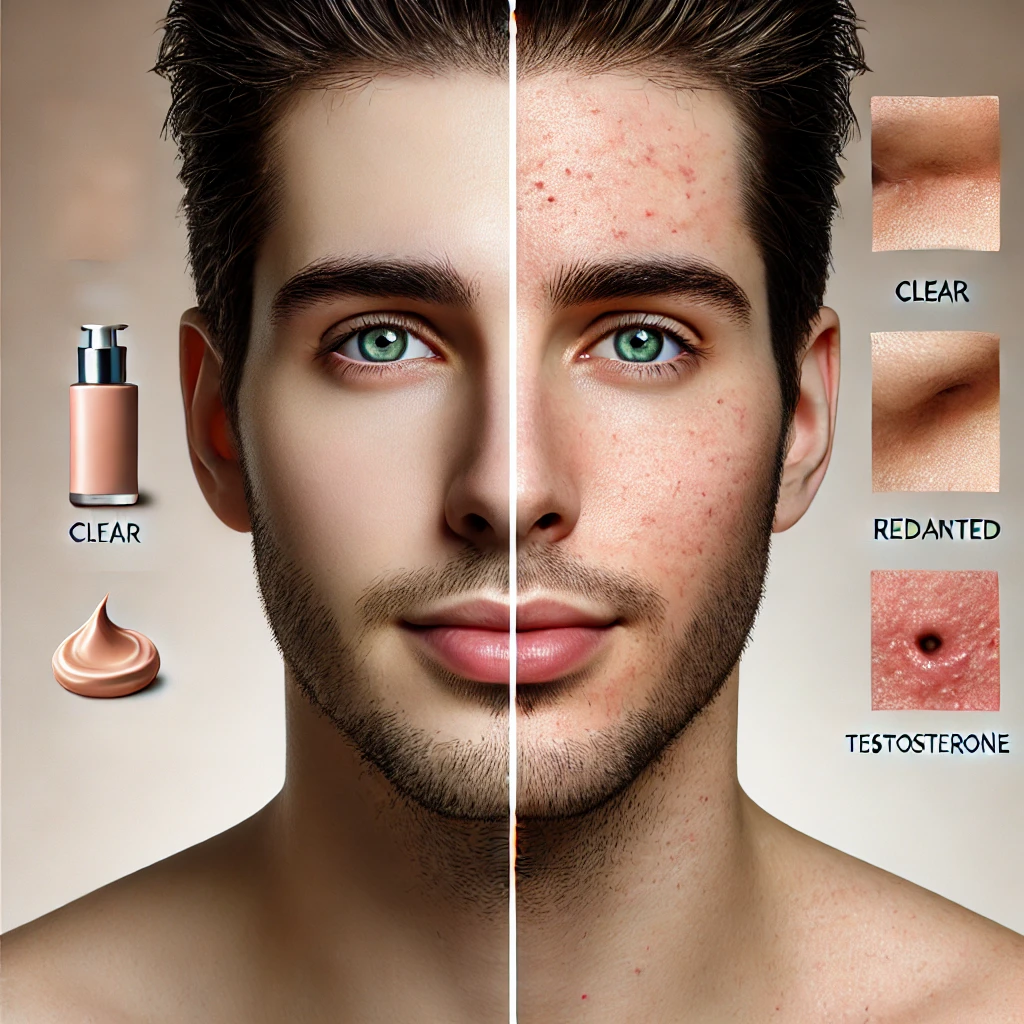
The Role of Testosterone in Men’s Skin
Testosterone, the primary male hormone, plays a pivotal role in shaping the characteristics of men’s skin. It contributes to the production of thicker skin, denser collagen, and higher sebum levels. These factors are essential for maintaining skin health but can also lead to common skin concerns.
What High Testosterone Does to Your Skin
High levels of testosterone stimulate the sebaceous (oil) glands, which can lead to:
Excess Oil Production
Testosterone increases sebum production, which helps keep your skin hydrated and supple. However, an overproduction of oil can clog pores, leading to acne breakouts, particularly in areas like the face, chest, and back.Acne and Inflammation
When oil mixes with dead skin cells, it can create an environment ripe for bacterial growth, leading to inflamed, red pimples or cystic acne. This is why men with high testosterone levels often experience more severe acne.Thicker, Oilier Skin
Testosterone thickens the dermis and increases oiliness, making the skin more resilient but also prone to issues like enlarged pores and blackheads.
The Positive Side of Testosterone for Skin Health
While high testosterone can cause skin problems, it’s not all bad. Healthy testosterone levels:
- Promote collagen production, which keeps your skin firm and elastic.
- Support wound healing and repair damaged skin.
- Contribute to a naturally radiant skin tone.
Fun Fact: Did You Know?
Men’s skin is approximately 25% thicker than women’s due to testosterone. This thickness offers more protection against environmental damage but can also make exfoliation and proper cleansing more critical.
How to Balance Testosterone-Related Skin Issues
Managing the effects of testosterone on your skin doesn’t mean suppressing the hormone. Instead, focus on strategies that maintain balance:
- Cleansing Routine: Use a gentle cleanser twice daily to remove excess oil.
- Non-Comedogenic Products: Opt for products that won’t clog pores.
- Exfoliation: Regular exfoliation can prevent dead skin buildup and reduce blackheads.
- Healthy Lifestyle: A balanced diet and regular exercise can regulate hormone levels, reducing skin flare-ups.
Radiant Skin Tip
To achieve radiant skin despite testosterone-driven challenges, hydration is key. Look for lightweight, oil-free moisturizers that replenish moisture without contributing to oiliness.
Closing Thoughts
Testosterone plays an essential role in the health and appearance of men’s skin, offering both benefits and challenges. Understanding how it affects your skin can help you tailor a routine that enhances your natural glow while tackling common concerns. With the right care, achieving radiant skin is within reach!

Excеⅼⅼent, what a website it is! This web site gives valuable data to us,
keep it up.
Thank you so much for your kind words and encouragement! We’re thrilled to hear you’re finding value in the content. If there’s any specific topic you’d like us to cover or explore further, feel free to let us know. Your feedback helps us grow and serve you better! 😊